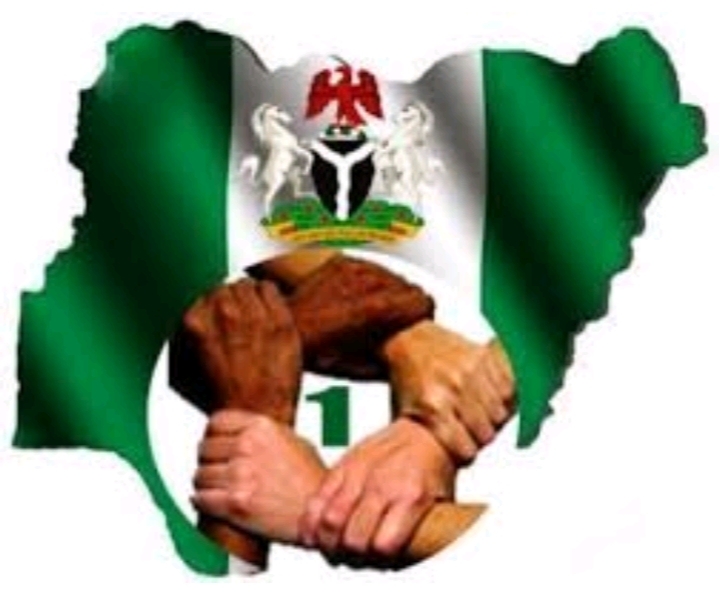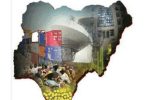Language has been applied for varied purposes, and particularly to express human thoughts, plans, and aspirations. The significance of language in Nigeria is so critical. Because language is a strong determining factor in the struggle to establish national unity in Nigeria – a multicultural and complex nation. Yet again, Nigeria is the world’s second largest presidential democracy (after the United States of America). We must not ignore language as a potent instrument of politics, democracy, and nation-building in the ethical sense – and not otherwise.
Regardless of which language medium is applied at any time (whether official English or native languages). It is now pertinent to insist on upholding one national identity without regard for distinct ethnic identities, religion, gender, or any such national issues.
The Scope of Language in Nigeria
Nigeria has 371 ethnic groups and over 525 native languages. Not surprisingly, Nigeria’s journey towards meaningful socio-economic development and national cohesion is an uphill task. Nevertheless, we can employ language in Nigeria (amongst other factors) to lessen divisiveness, and facilitate meaningful social discourse and inclusion nationwide.
But what is language in the first instance? Language is a system of (human) communication with the use of vocal and written symbols. Wikipedia further defines language as:
“… a structured system of communication that consists of grammar and vocabulary. It is the primary means by which humans convey meaning, both in spoken and written forms, and may also be conveyed through sign languages.”
Certain members of the learned community have emphasized the many roles of language in any meaningful human society. To begin with, language is a powerful instrument in any nation’s political space – that we have already established. Because language is a primary medium for promoting national cohesion and thus national development as well, if used in a positive and persuasive way. That cohesion is far easier to achieve with a common national or official language.
With the language medium, all citizens can better interact, communicate, share ideas, and voice their concerns. Language can further be used to enlighten citizens of their rights and obligations. The government can also better relate with its citizens via a common language. With language, the government can communicate its developmental plans and objectives to the people, thus persuading them to cooperate. Language is also an instrument for exerting power and authority over the citizens (which should never be abused). To that end, we have standard English (and lately Nigerian pidgin English) to thank for such resourcefulness.
It goes without saying that upholding the use of indigenous language in Nigeria is a two-edged sword. Indigenous languages are so many in Nigeria, that they cannot be used to achieve cohesion or cooperation at the national level. However, they are useful at the grassroots level for communicating national objectives to the local people. Additionally, indigenous languages can be used to mobilize the locals to contribute their quota to the national discourse, democratic values, and nation building.
In this way, language can be used to induce loyalty towards the government. It can further create a spirit of national consciousness/solidarity in all citizens, by encouraging open but constructive criticism and conflict resolution. This will further reduce disagreements based on divisive factors such as ethnic differences, gender, social class, religion, and the like.
The Challenges and Politics of Language in Nigeria
It is very clear that language can either unify or fracture a nation, depending on how it is used. Which gives causes for concern about the brand of ‘ethnic politics’ being practiced in Nigeria. Many critics have pointed out that hate speech and divisive language are very common among political aspirants and government officers in Nigeria.
It is well known that certain ethnic groups (particularly those of northern Nigeria) have had unequal control of the nation’s political system. And they have been doing so for decades. This has led to the creation of voting systems, political parties, and national resource allocation strategies that reek of gross inequity and abuses. Many smaller ethnic groups have for long been marginalized or poorly treated – a clear reason for constant tensions and strife in the country.
And too often, influential political players tow the line of ethnic (and religious) divisions to favour their own in political and government appointments. In the process, a crop of corrupt and incompetent leaders and government officers are repeatedly being chosen into key government posts in Nigeria. Many of these incompetent government appointees and politicians have been observed to use divisive language to promote their own selfish agenda. They hold onto power, indulge in several abuses, and relegate others at every opportunity. Then they result to hate speech to further detract their critics and opponents. That language style has been repeatedly used to heat up the polity, particularly around periods close to presidential and governorship elections.
Such divisive language styles and acts have badly impacted Nigeria’s journey towards national unity and progress over the years. It has further engendered the spread of poverty; as well as poor infrastructural and economic development. In other words, such selfish political players play on the ignorance and simplicity of the common people. They manipulate the everyday Nigerian with words and actions intended to convince the masses that they can uplift the nation. They further deceive the masses with cheap and useless gifts; poor bribes intended to cater for immediate hunger. Then they enter the government offices, take control of national assets, and further impoverish the masses. To make it worse, they use divisive language to incite discord and violence along ethnic and religious lines.
Language in Nigeria: Towards Fostering National Unity Devoid of Ethnicity
Therefore without doubt, it is now critical to continually enlighten the Nigerian masses about their democratic and civic rights. And for them to continually demand for responsible leadership. Neither should the channels of national discourse and cooperation be blocked by any irresponsible politician or government officer. We can employ official and pidgin English language at the national level to mobilize people. On the other hand, indigenous languages should be actively used to engage people at the grassroots level towards shunning divisive and backward politics.
It would require the cooperative efforts of non-governmental organizations, civil societies, trade unions, the legal system, international communities, the learned community, Nigerian professionals and think-thanks to establish this reality.
Equally important is the need to continually teach Nigerian youths to develop their leadership as well as citizenship abilities. They also need to courageously demand for their rights, no matter the situation. We look forward to the days of glory. Where language in Nigeria will no longer be a barrier, but a facilitator of national cooperation and greater socio-economic development.








